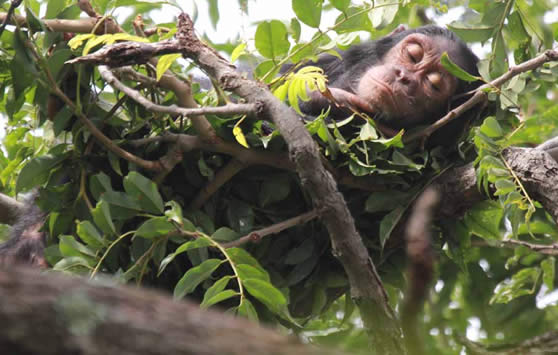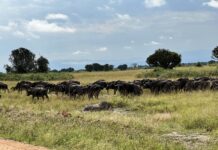It has been revealed by research that we human beings hold more bacteria in our beds from our bodies than primates do. Chimpanzees are the closest relatives of mankind in evolution and these have a 98% DNA similarity with the same immune, respiratory, digestion and circulatory systems. The chimpanzees are commonly found in the east central rain forests of Africa in Uganda, DR. Congo Rwanda and Tanzania. This researcher was conducted in Tanzania Gombe national park.
Chimpanzees have much cleaner beds than primates according to scientists
Comparison samples taken from the chimp nests with those from the human beds established that animals’ beds had less bacteria than the people’s sheets and mattresses that was got from their bodies.
Research suggests that our hard attempt to have a clean environment for ourselves turns out to be less fruitful
35% of the bacteria in the human beds come from the saliva, faecal particles and skin and other hand the chimpanzees-humans’ closest relatives appear to sleep with few bacteria.
Researcher Megan Thoemmes said that they found almost none of the microbes (bacteria) in the chimpanzee nest.
Samples were collected from chimpanzee nests by researchers in Tanzania and tested them for the microbial biodiversity.
Vacuums were used to find out if there were arthropods, such an insects, spiders and mites and ticks at the 15 chimpanzees’ nests.
“We also expected to see a significant number of arthropod parasites, but we didn’t,” said Ms Thoemmes.
In addition, the team were shocked to find very few fleas, lice and bed bugs – ectoparasites – in the chimp nests.
“There were only four ectoparasites found, across all the nests we looked at. And that’s four individual specimens, not four different species,” said Ms Thoemmes, a PhD student at North Carolina State University.
She believes chimps’ beds are cleaner because they make them freshly in treetops each day.
Although they sleep surrounded by fewer bodily bacteria, chimps had a more diverse range of other natural bacteria from their leafy surroundings, the research found.
Ms Thoemmes said she believes human’s susceptibility to autoimmune diseases and allergies could be linked to these differences.
“We know that human homes are effectively their own ecosystems, and human beds often contain a subset of the taxa – or types – of organisms found in the home,” she said.
“This work really highlights the role that man-made structures play in shaping the ecosystems of our immediate environment. In some ways, our attempts to create a clean environment for ourselves may actually make our surroundings less ideal.”
The study said: “To put it simply, we have created sleeping places in which our exposure to soil and other environmental microbes has all but disappeared, and we are instead surrounded by less diverse microbes that are primarily sourced from our own bodies.
“Chimpanzee beds contained no arthropod specimens specialised on life with chimpanzees. In contrast, the arthropod communities in human homes are diverse, often including hundreds of species, tens of which are specialised on life indoors.”
Any out there who wants to make research about these great apes (chimpanzees) book a car with self drive in uganda to explore the tropical rainforests of East Central Africa to hang and learn more about the chimps.






